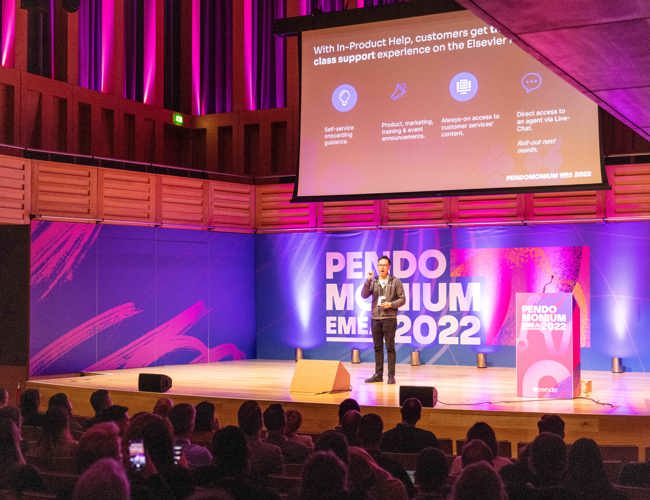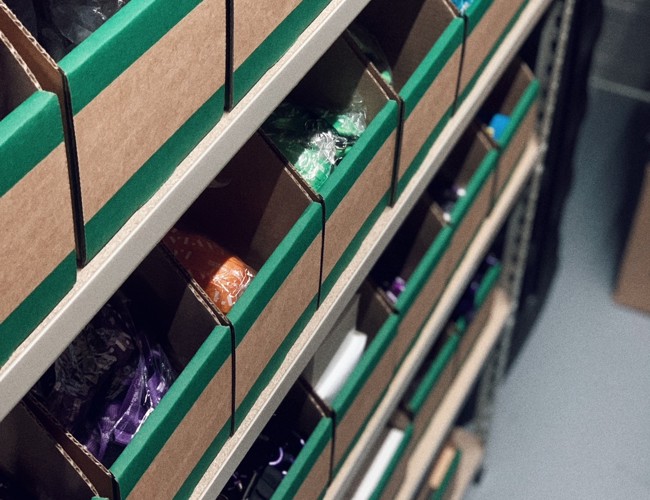Ten Tips for putting on Phenomenal Corporate Events

A well-organised corporate event is a fantastic way of helping an organisation achieve its goals and build its customer base and reputation. Here's a quick rundown of our Top 10 essential ingredients to planning a successful event.
1 Define the Goals of the Event
If you've decided to hold an event you've probably already given some thought about what you want it to accomplish. Formulating this abstract objective into tangible and ultimately trackable goals is the first stage in the event planning process.
Whether it's building brand recognition, lead generation, customer engagement, market research, education or training, defining your goals from the outset is crucial to determining the scale and the nature of the event you want to put on and – as we’ll see in our next point – who you need to invite.
2 Determine Who Your Target Audience is
As with any marketing venture, one of your very first steps when planning a corporate event is to identify your intended audience. This single decision, more than almost any other, will dictate the terms of every other decision you make in the event planning stages, so it's vital to get this right.
Understanding who your audience is, takes more than just tapping up your customer or email marketing database. Identifying the real influencers or hot prospects are in your market or industry should also form a crucial element of your strategy, so you can target them with more tailored or personalised marketing. Once you know who your target audience is, it's much easier to stay focused on the end goal, and on what you want the event to achieve. This will also heavily influence your promotional and marketing activities.
3 Give People a Reason to Attend
Perhaps as fundamental as defining your audience, is working out how to attract people to your event and what they will get out of it. Only then can you begin looking at how you can benefit from their attendance, whether this be through lead generation, brand building or knowledge dissemination. In other words, you know what your goals are, but what will your audience's goals be? What are you providing at the event that will make people want to attend?
For instance, a trade show or exhibit provides the chance for attendees to discover new products, showcase your own products, or make new business connections. For a consumer product launch the expectation is more of a party atmosphere, with live entertainment, free product samples or gifts, and perhaps even celebrity guests.
4 Make the Most of Social Media
Social media is incredible for promoting corporate events because of the ease with which you can build a community and generate pre-event buzz across existing networks or people. One way to do this is to create a unique hashtag and use it on every piece of advertising material relating to the event, including the event website and other online materials, as well as any posters, brochures, and other printed marketing materials you use. Make sure all your videos include the hashtag in an easily visible place.
Don't stop there though… Social media is also perfect for holding mini-events in the weeks leading up to the big one. Hold a Twitter chat to talk about the event, and perhaps invite some of your main speakers or high-profile attendees to contribute. You can also use social media to promote webinars, run competitions and giveaways, as well as plugging your guest speakers.
Use community and employee advocacy to extend your reach without spending a fortune on paid social - get colleagues, friends, and business partners to like, share, and comment on your content about the event. Leverage the influence of your booked speakers' social networks by encouraging them to join the conversation on social and mention your event whenever possible in their own posts and updates.
5 Develop a Detailed Financial Plan
This is important even for small events, because it's likely that the cost of the event will be one of the metrics you use for defining how successful it ultimately is. A preliminary financial plan should include cost estimates as well as details of how you expect to fund the event, whether it's from ticket sales, sponsorship, an internal budget, or all three. Once you have a financial plan in place it’s important you try to stick to it.
6 Find Some Relevant Sponsors (and Treat Them Well)
Enlisting the support of one or more sponsors can be an excellent way of stretching your event budget a bit further, but if you choose to go this route there are two important points to keep in mind:
- Choose sponsors who are relevant to your organisation and your event. Ideally, your organisation and your sponsors should share or have relevance to your target market.
- Be sure to have in place a clear agreement that details what your sponsors will receive in terms of advertising and other perks. Be generous here (there's no reason not to be) and if your sponsors are satisfied with their end of the bargain it's more likely you'll be able to turn to them again in the future.
7 Don't be Afraid to Delegate
Hosting any kind of corporate event is a big undertaking, but invariably the larger the event, the more complicated it gets. No matter the size of the event, don't be tempted to take on every aspect of planning and organising by yourself. High stress won't help you stay level-headed as crunch time draws near. Also never underestimate the amount of admin, paperwork and phonecalls that go into organising even the smallest of events.
Working with an event management company like Outsourced Events could ultimately save you a lot of time, money, and long, stressful late finishes in the office trying to get things organised before the big day.
Similarly, if you're ultimately responsible for the event, be sure to check in often with your team to make sure every aspect of the event stays on time and on track. Let each member of the team know that you expect periodic updates, and be clear about any other expectations you have too.
8 Choose an Appropriate Venue
When it comes to planning a corporate event, few details are as important as the event venue. One reason for this is simply that it eats up the largest percentage of the event budget, but it's also because it's the factor that has the most influence over the success of the event. A great venue fits with the tone and purpose of the event and provides all the necessary amenities, as well as enough room to accommodate your guests.
Make sure you understand what the venue provides (security, catering, etc) and what you will have to provide yourself. Also don’t forget the small things, like plug socket locations and if the venue has its own wifi. It may seem obvious but it’s amazing how often details like this can get overlooked.
If you're looking for a city location outside your own, take a look at our guide to the Top 10 Cities in Europe to Host Your Next Event.
9 Plan Transport with Care
For large events, especially those that are held outside a city or are spread over a large area, transport can play a very important role in ensuring that you're able to offer your guests a seamless all-in-one event experience, from the moment they step out of the airport or train station.
It's essential to plan your transportation options down to the last detail, but just as essential is that your plan includes plenty of wiggle-room in case changes need to be made on the day. For every route and mode of transportation you plan for, make sure there's a contingency plan in place to ensure that your attendees can get where they need to go.
Think about sustainability in transportation - eco-friendly options include encouraging the use of public transport where possible, organising shuttles to take attendees to and from the venue in groups, and lift-sharing (car-pooling).
10 Be Flexible
Planning a large corporate event is not an easy task. There are literally hundreds of details, large and small, that need to be planned and accounted for and it's almost guaranteed that at least one thing won't turn out the way you envisioned it or put you behind schedule. All this means that flexibility is key when planning a large event. It’s therefore important that you can stay on top of the wider event strategy and planning and don't get bogged down in all the day to day admin and details.
Working with a reputable and seasoned event management company is certainly one way to achieve this.
Don't worry if your event doesn't turn out exactly as you first thought it would. As long as you keep your primary goals in mind - in terms of your purpose and target audience - you'll soon be on the way to planning a knockout event.
To find out more about how Outsourced Events can achieve your vision and create a phenomenal corporate event, please get in touch today: call us on +44 (0)330 460 6007 or email us.
Our Latest Knowledge & Insights

Anne Cooke
Anne joined our team as Head of Learning and Development in May 2023, and is spearheading an exciting new Outsourced Events formalised training programme for early-stage career event management professionals. Anne's background is in neuroscience and completed a PhD and postdoctoral research at the University of Cambridge. Before joining Outsourced Events she was CEO of the British Neuroscience Association (BNA).
Read More
Cassandra Keogh
Cassandra is our innovative Director of Strategic Initiatives, with more than 15 years of event and project management experience in Australia and the UK. Her passion for music, scotch, chocolate, coffee, dancing, Japanese food, and travel fuels her exploration between events and studies.
Read More
Celebrating our Finance Team
It was a Red Velvet kind of a day in the Outsourced Events office recently as we celebrated our fabulous Finance Team.
Read More



